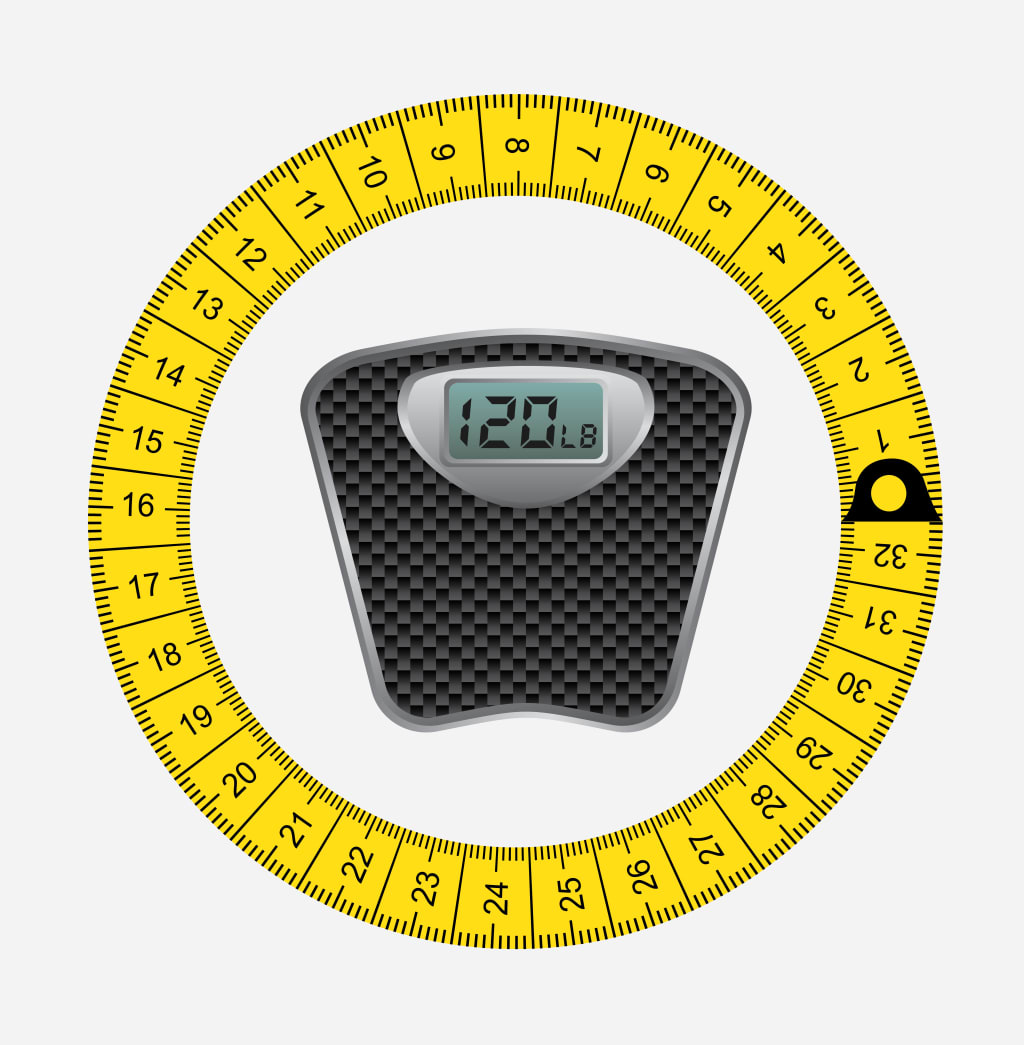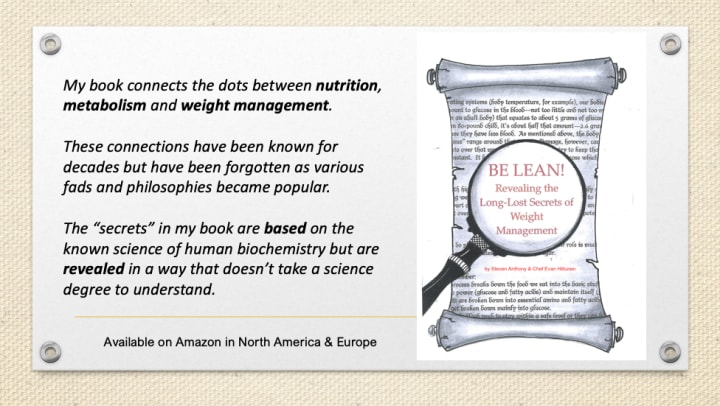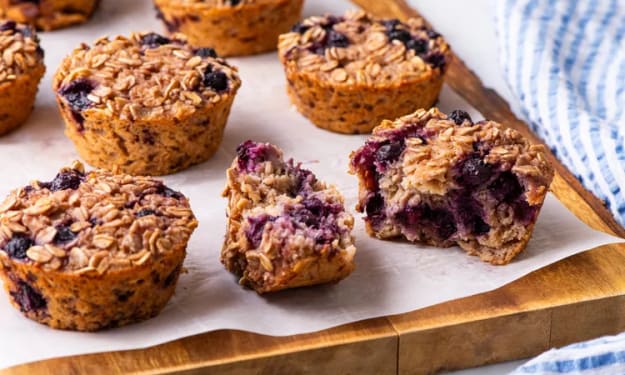What’s Weight Got to Do, Got To Do With It?
It's just a side-effect of energy management

If COVID-19 hadn’t shut down most of the gyms already, this would be the time thousands of recent subscribers would be throwing in the towel on their resolutions to lose weight in 2021. This is what typically happens every year. People resolve to lose weight and join a gym to do the active part of their doctor’s or their nutritionist’s advice of “eat less and move more.”
To their surprised satisfaction they see movement on the scale in the right direction! But by the end of January their weight loss slows, then stalls. It’s frustrating! They are tired from the workouts and hungry from eating less. While they were losing weight, it felt worth it. But after a week of the needle on the scale not moving, motivation starts to slip.
By early February, the needle moves again—but in the wrong direction. WTF! Now they are tired and hungry all the time plus inching back to their starting weight. It’s at this point many just give up. This is what happens to 95% of overweight people who try to lose weight using the eat less/move more approach to weight management.
Having been morbidly obese myself, I know what goes through their minds—Okay, I did have a bagel with peanut butter that one day and I did have two beers last night when I went out with friends. As much as you think you are following the advice of your health care professional, you figure you must be doing something wrong, because you just keep gaining weight.
Clearly all the thin people in your life think you just don’t have the willpower to stick to your weight loss program—they think you are sneaking candy bars and Doritos when they aren’t looking. Or they suspect you are going to the gym, but you aren’t really working out. And when you go to your doctor or your nutritionist and you’ve gained weight since your last visit, that’s what they are thinking, too. Essentially, when thin people see obese people, they assume the obese people are lazy and eat too much. In fact, a lot of obese people think of themselves the same way. They think they must be doing something wrong, or the advice would work.
But what if it’s the advice that’s wrong?
If we step back a second, and look at that figure I mentioned above: 95% of overweight people who try some version of eat less/move more don’t end up losing weight long-term. The obesity epidemic in the US really started trending in the 1980s. Are we to believe that through most of human history, humans had the willpower to maintain trim figures but decided to just give up in the 1980s? Look at old news footage or photos from the 1950s. Almost no one is overweight, let alone obese. And why is it that all other animals stay a healthy weight on their own, left to eat as much as they want—unless we feed them processed pet food, in which case they tend to get fat?
Spoiler alert: I think the advice we’ve been given is wrong. Hear me out.

The eat less/move more advice is based on the idea that the number of calories used by the body is independent from the number of calories put in. So, the idea goes, if we expend more energy in a day than we take in (i.e., that we eat), we will use body fat to make up the difference. That sounds logical. Unfortunately, it’s not true. And I imagine if it were true, there would not be so many obese people walking around.
Your body is more like a financially responsible person with a bank account. When a steady stream of money is coming in, spending isn’t a problem. If fact, they might even save money in the bank with every paycheck to be ready for emergency spending like car repairs. After several years, they might even have a fat bank account. Then, let’s say that person loses their job. Now much less is coming in and there is the prospect on the horizon of even unemployment benefits drying up. Does that person keep spending like when they were gainfully employed? No—they cut back and spend less, trying to stretch what they have banked as long as they can.
A similar thing goes on in your body. Fun Fact: Your body has no way of knowing how much you weigh. And even though your brain can know, it has no way of telling the rest of your body. What your body does have is a system of hormones that signal how much energy your body has stored inside of it and how much energy is coming in from what you eat. Keep in mind that the body has little control over how much energy comes into the body—there are many aspects of the food environment that are out of the body’s realm of influence. The body can motivate you to find and eat food (like you can search for and apply to jobs when unemployed) but if there is no food to be had (no jobs available) there is little the body can do. The one thing it CAN do, however, is reduce the amount of energy it expends each day.
Most of the energy you expend is simply the energy you use in your everyday life. Most nutrition scientists estimate that about 85% of the energy you use is just used for activities like walking around, sitting up, working at your desk, breathing, eating and keeping yourself warm. When you start eating less and moving more, you are creating a caloric deficit—an energy deficit. You start using more energy than you are taking in. Your body notices this. It’s not so reactive that things change right away. Your body will give you time to come to your senses and start eating more or moving less, to get that balance back again. It even makes you hungrier than usual and tries to get you to relax more on days you go to the gym. You understand that you want to lose weight—but your body has no idea what that means let alone have a way to do anything about it. Remember, it doesn’t know how much you weigh, even if your eyes are looking at the scale.
When you keep up that caloric deficit for a few weeks, your body dials back the energy you expend—just like the unemployed person scales back their spending. So, you start getting more lethargic, and you probably start feeling colder. If you keep track of your heartbeat, you might see that come down a bit and think “oaky, my cardio is improving!” But in this situation, it’s actually a sign that your body is slowing its own metabolism down to conserve energy. Now, even though you are eating less, your body has dialed itself back even more to compensate. This is why your weight loss stalls and then your weight starts to creep up.
So, what’s really happening?
The overview of what’s going on in the body is quite simple. Once I discovered these secrets, I lost weight effortlessly, to the tune of 175 pounds. No—I’m not selling anything. I did write a book about it, if you are interested, but the basics are right here in this article. The book goes into more detail and covers related topics not in this article, but the basic secrets are right below. And please note that when I say “I discovered” I don’t mean that in the sense that I was the first to figure this out—the basic science described below has been known for nearly 100 years.
As I mentioned earlier, we have a system of hormones that regulates our energy management. Well, it turns out that a side-effect of energy management is our weight. So, instead of thinking of your body fat as weight, think of it as “potential energy.” That’s exactly what body fat is.
When we eat a meal, our digestive system breaks down what we eat into various nutrients. We are going to focus here on the three macronutrients—our macros: Carbohydrate, protein and fat. These three macros get broken down into glucose, amino acids and fatty acids, respectively. The USDA recommends (via the food pyramid) that we eat about 60% of our daily calories in the form of carbohydrate. If you eat 2,000 calories a day, that works out to 1,200 calories a day from carbs. At 4 calories per gram of carbohydrte, that’s 300 grams of carbs a day. Remember that number: 300 grams.
A lot of people (including doctors and nutritionists) think that our body needs us to eat carbohydrates because it (or the glucose it gets broken down into) is how we get our energy. Fun Fact: We only need about 5 grams of glucose in our system at any given time. The only cells that need glucose are red blood cells and liver cells. Very important parts of our body, for sure. But here’s another Fun Fact: The required amount of carbohydrate we need to eat in order to thrive is zero grams per day. Don’t feel bad if this comes to you as a surprise. In 2005, the Panel on Macronutrients: Dietary Reference Intakes for Energy, Carbohydrate, Fiber, Fat, Fatty Acids, Cholesterol, Protein, and Amino Acids concluded:
The lower limit of dietary carbohydrate apparently is zero, provided that adequate amounts of protein and fat are consumed.”
The fact that they added the word “apparently” in their report suggests that they were surprised by this finding as well! Oh, and “dietary carbohydrate” means carbohydrate that we have to eat.
The U.S. Department of Health and Human Services and U.S. Department of Agriculture 2015–2020 report on The Dietary Guidelines for Americans defines an essential nutrient as:
a vitamin, mineral, fatty acid, or amino acid required for normal body functioning that either cannot be synthesized by the body at all or cannot be synthesized in amounts adequate for good health, and thus must be obtained from a dietary source.
In other words, “essential nutrients” are defined as nutrients we need to eat to allow our bodies to function normally. Note, they do not mention carbohydrate in their list of essential nutrients.
But how can it be that we both need glucose, but don’t need to eat any of the macronutrient from which we can derive glucose? The answer is that the liver will synthesize all the glucose our body needs as long as we have enough protein and fat in our system.
Okay, so we don’t need to eat carbohydrate to get glucose—but what’s the harm in eating carbs?
The problem comes when we have an overload of glucose in our system—and this, due to genetic factors, isn’t a problem for everyone. For me, it’s a problem. My guess is that for anyone who is overweight or obese, it’s also a problem. Here’s what’s going on:
You eat a meal with 100 grams of carbs in it—that’s about 90 grams of glucose added to the 5 grams in your bloodstream. That much glucose in the blood can be dangerous to the ultra-fine blood vessels and can lead to retinal damage and kidney disease, among other things. Like many of our internal systems, the body tries to regulate glucose levels within a safe range by storing it in various places and forms within the body when there is too much in the blood. If your ability to control blood glucose is hopelessly shot, you will start to pee out the excess sugar—this is why Type 2 diabetics need to pee all the time and why doctors used to taste your urine to determine if you had Type 2 diabetes.
Insulin is the hormone that manages your glucose. You always have a base level in your bloodstream to manage the 5 grams it needs at any given time. When you get a spike in blood glucose, your pancreas responds and pumps more insulin into your blood to manage the extra glucose. Insulin will first signal any cell that can use glucose for energy to fill up. What glucose is left will be processed by the liver into glycogen (a dense form of glucose) and offered to muscle cells for storage. Once the muscles are full, the liver converts the rest of the glucose to fat. Some of that fat can be stored in the liver for quick conversion to glucose later on. The rest goes into your adipose tissue—your fat cells—which don’t have a limit on how much fat they can hold.
The cells in some people’s bodies—the ones who can seemingly eat anything and not get fat—remain very sensitive to insulin their whole lives, so the amount of extra insulin needed to manage after-meal spikes in glucose remains relatively consistent and low. Any fat that is stored is used up during the day between meals and while they sleep. A hormone called glucagon is “in charge” of burning body fat—but it can only start the fat-burning process when the level of insulin in your body is low. By the end of a 24-hour cycle, their stored energy (and their weight) is basically the same as it was the day before, and the day before that. If the eat over their 2,000 daily calories, their body will just encourage them to move a little more (they might get fidgety), eat a little less (they just won’t feel so hungry) or make them a little warmer, to use up the extra stored energy (body fat).
That, however, is not how it works for most people. The cells in a majority of people’s bodies become resistant to the effects of insulin. So with every meal they need a tiny bit more insulin to manage blood glucose. Over time, as these people need more and more insulin to manage blood glucose, the level of insulin in the blood stays high for much of the day—too high for glucagon to start burning fat. For these people, the recently stored body fat can’t be seen by their energy-management system and thus, can’t be utilized. To stay with the financial analogy, it would be like having a fat IRA when you lose your job—you have the wealth, it’s just not available as the cash you need to live on. In a case of someone who is insulin resistant, they don’t have access to body fat between meals because their insulin level doesn’t get low enough between meals to allow glucagon to burn their fat for energy. So, their body makes them want a snack--which repeats this whole cycle.
Now consider the math. An insulin resistant person, eats their 2,000 calories. But let’s say 600 of those calories get stored as body fat after their meals—body fat that they won’t have access to. That means they are effectively eating at a 600 calorie deficit every day. How will their body react to that deficit? We saw, above, that their body will try to get them to eat more or slow down their metabolism--or both. If they eat more, they will use more insulin and store more fat that they won’t have access to for a long enough period of time to use up before they eat their next meal. So they get a little fatter each day.
If you end up needing more insulin to manage glucose than your poor pancreas can produce, you become a Type 2 diabetic. Now you need medication or injected insulin to manage the glucose.
To summarize, if you are insulin resistant, the levels of insulin in your blood slowly rise over time to the point that they are too high for glucagon to initiate the use of fat for energy—it’s as if the potential energy that is your body fat doesn’t exist (remember, the body doesn’t sense weight, just energy). So you just get heavier and heavier because you can’t access the potential energy your system can’t see.
So What Can Be Done?
It’s simple: To get the body to use the potential energy stored in fat cells, we need to let glucagon do its job. To let glucagon do its job, we need to have our blood insulin level below a certain threshold. Insulin levels in our blood change with the level of glucose in our blood. The amount of glucose in our blood is directly related to how much carbohydrate we ingest.
If we lower our intake of carbohydrate, we lower the amount of insulin we need in our bloodstream. If we lower our insulin level enough, glucagon can start burning our fat sooner. This will use up some of our fat each day, which will lower our weight. And note—when you lower carbohydrate intake, you increase your intake of protein and fat. You don’t need to reduce your total daily calories for this to work.
How low can we drop our intake of carbohydrate and not cause harm to ourselves? As we saw above, research shows we can safely lower our carb intake to zero grams per day. Research also shows that just lowering intake to 50 grams a day—versus the 300+ grams recommended by the USDA—will lead to significant weight loss in an obese individual.
I reduced my carbs in stages. At first I didn’t really understand what I was doing—I was on a point-based weight-loss program and bread and pasta were a lot of points relative to protein and fat, so I ate fewer carbs. When I learned how the body reacts to carbs versus other macronutrients, I reduced my carbs to 20 grams a day or less and dropped pounds per week. Of course, I had a lot of “potential energy” to lose. And as you lose more body fat, you lose less and less per day. So far, I’ve gone from 365 pounds at my heaviest to about 190 pounds as I write this article.
Reducing carbohydrates in your diet not only leads to dramatic weight loss (if you are overweight), but it can improve your metabolic health in general. But note—if you are on medication of any kind—especially medication for glucose management—consult with your doctor before changing your diet. A lot of medication dosing is based on your weight—so as you lose weight, your medication dosing might need to be adjusted.
If you are on glucose management medication or inject insulin, as you ingest less carbohydrate, you will have less glucose to manage—thus your medication(s) will need to be adjusted. So, again, consult your doctor before changing your diet.
Thanks for reading my article! If you found it helpful, let me know! Sending me a tip will help me present more articles on this topic here on Vocal.

About the Creator
Steven Anthony
American author now living in Italy. My book, BE LEAN! Revealing the Long-Lost Secrets of Weight Management, is available on Amazon.






Comments
There are no comments for this story
Be the first to respond and start the conversation.